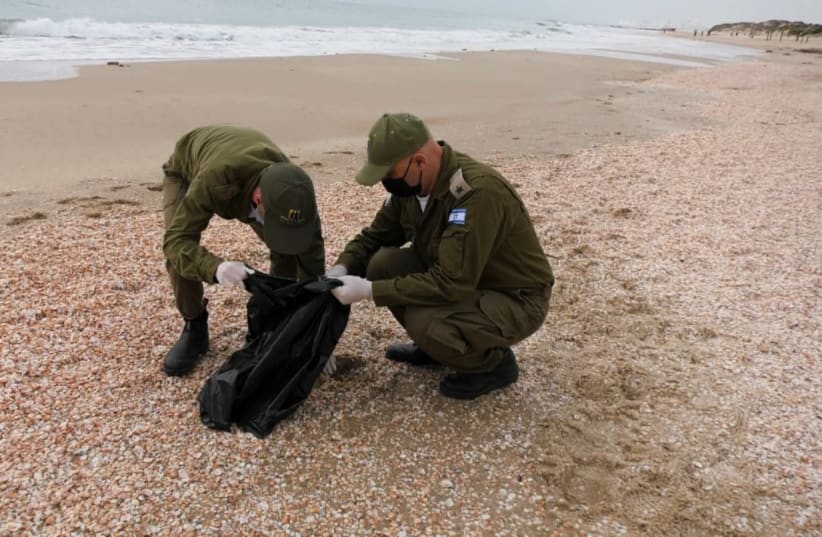More than four months since the massive oil spill that saw tons of tar wash up along Israel’s shores from Rosh Hanikra to Ashkelon, tar is still marring beaches.
“We’re getting information from people telling us about seeing tar on the beaches and people coming back home with black feet,” said Maya Jacobs, CEO of Zalul, an NGO that protects Israel’s rivers and seas.
“This demonstrates the attitude towards sea pollution. It took something drastic in order for people to realize that there’s a real problem,” Jacobs said. “The tar is still contaminating our shores and beaches.”
More than 1,000 tons of tar was washed onto Israel’s Mediterranean coastline in February, in what the Nature and Parks Authority called one of Israel’s worst environmental disasters.
The Environmental Protection Ministry identified the ship it believed was responsible for the oil spill as the Panama-flagged, formerly Libyan-owned tanker Emerald, which it said was carrying Iranian oil.
Although the massive cleanup attempt of the coast that resulted included thousands of volunteers, it was estimated that it could take months to years for the traces of the spill to finally disappear.
“For the first few months, it totally took over our organization,” said Jacobs. “We didn’t do anything besides taking care of the tar. We gave over 100 interviews in Israel and abroad in order to raise awareness for this. At first, the media wasn’t aware enough and wasn’t really interested in it.”
Michael Raphael, of the Mediterranean People’s Campaign, a coalition of environmental-based organizations in Israel, told The Jerusalem Post that time was of the essence after the oil spill took place.
“When oil comes up to the shore, there’s only a certain amount of time that we have [to] collect it from the top staff before it starts leaping into disaster, and then you don’t see it anymore,” he said.
“A lot of it seeps into the ground and is already poisoning the ecosystem Raphael said. “The tar that came off is already seeping into the sand and invading the ecosystem. It’s going to be very difficult to clean up.”
Raphael warned that another spill is in the offing if government regulations don’t change.
“The last government planned to increase the number of oil barges to bring to Eilat and Ashkelon, which means increasing the risk of a catastrophic spill that could destroy the bay of Eilat and the beautiful coast of the Mediterranean that we have here,” he said.
According to Jacobs, the best way to prevent a future disaster from occurring is to lessen the risks now.
“There’s no preparedness for an emergency,” she said. “We’re demanding the establishment of a regional emergency force, which will be a joint effort by all the oil companies.”
